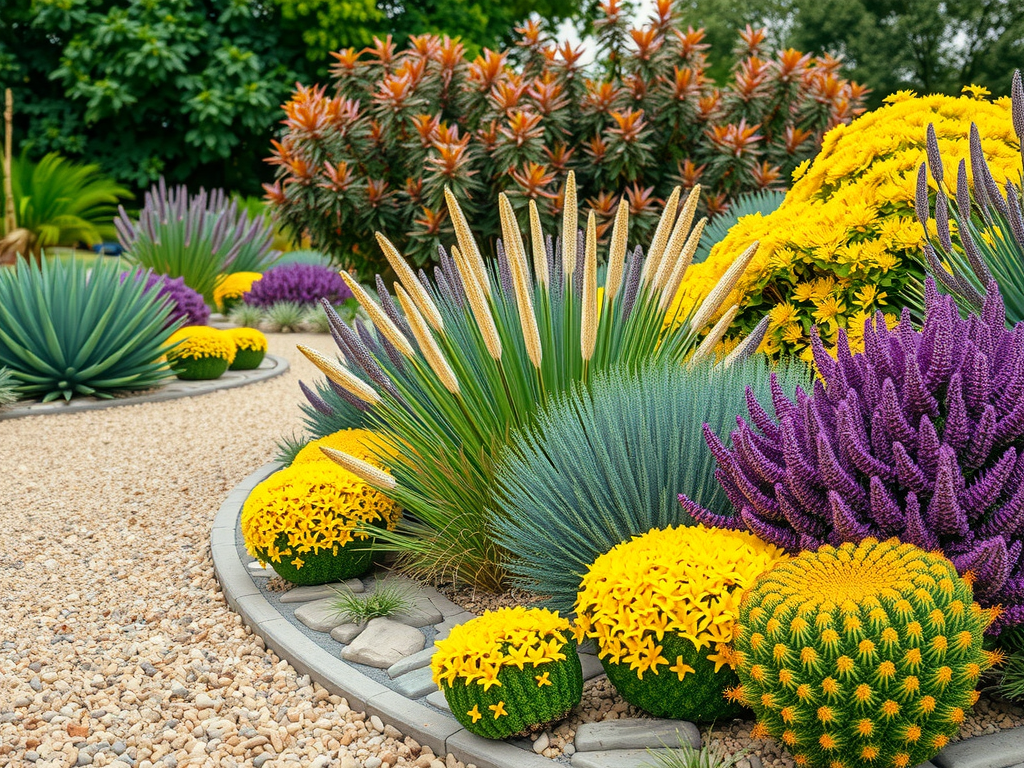
Designing outdoor environments that flourish with minimal water is increasingly important for homeowners in Fort Worth. Incorporating native plants introduces unique beauty while supporting local ecosystems.
By implementing low-water landscaping, residents can significantly reduce their irrigation needs and conserve precious resources.
A well-planned outdoor area can feature artificial turf alongside vibrant vegetation, creating a stunning visual appeal.
This solution not only enhances the property’s aesthetics but also minimizes the time and effort needed for upkeep. This sustainable approach offers the perfect balance of beauty and practicality, allowing for leisure without the worry of excessive maintenance.
Click here to learn more about: dentonturf.com
Benefits Of Xeriscaping In Fort Worth
For residents of Fort Worth, adopting sustainable landscaping practices can lead to numerous advantages. Utilizing ecofriendly gardening techniques minimizes reliance on conventional irrigation systems, making landscapes more resilient during dry spells.
Homeowners can curate a visually appealing garden filled with drought-tolerant plants that require less maintenance compared to traditional options.
This approach significantly reduces water consumption during the sweltering summer months, translating to decreased utility expenses.
Soil erosion control is another significant benefit, as these carefully designed landscapes stabilize the earth and promote biodiversity.
Ultimately, xeriscaping fosters a vibrant, low-maintenance atmosphere for both residences and businesses throughout the community.

How Artificial Turf Saves Water
Switching to synthetic grass offers remarkable benefits for conserving valuable resources in landscaping projects. For both residential landscaping and commercial landscaping applications, synthetic options require significantly less water.
Statistics reveal that homeowners can save thousands of gallons annually, promoting effective water conservation.
This efficiency benefits local ecosystems, especially in drought-prone areas like Texas.
Moreover, turf selection provides substantial savings on water bills, supporting community water resources. Considering the advantages of sustainable landscaping, choosing artificial turf plays a vital role in creating environmentally friendly outdoor spaces.
Synthetic Grass
- Homeowners can save thousands of gallons of water annually by switching to synthetic grass.
- Artificial turf significantly reduces water bills, contributing to community water resource sustainability.
- Synthetic grass helps protect local ecosystems, particularly in drought-prone regions like Texas.
- Choosing artificial turf promotes environmentally friendly landscaping practices.
Choosing Sustainable Landscaping For Your Home
Creating an eco-conscious outdoor space can significantly enhance your home’s environment. Homeowners across Denton and Fort Worth can make impactful choices by using landscape maintenance practices that prioritize sustainability.
Techniques such as xeriscaping utilize ornamental grasses to conserve water effectively, making them an appealing option for local gardens.
Incorporating a variety of native plants alongside these grasses enhances garden design and promotes biodiversity.
Proper mulch application retains moisture in the soil, which reduces the reliance on additional irrigation. Drip irrigation systems deliver water efficiently to targeted areas, minimizing waste and optimizing resources.
Choosing sustainable materials for hardscaping can create durable landscapes that stand the test of time. Embracing these mindful practices not only protects natural resources but can also elevate property value.
A commitment to sustainable landscaping fosters healthier communities and vibrant ecosystems.
What Are Drought-Tolerant Plants?
Creating a sustainable garden begins with selecting the right plants that thrive in low-water conditions. These species are particularly well-suited for xerophytic settings, making them excellent choices for urban landscaping in areas like Denton and Fort Worth.
Homeowners can cultivate water-efficient gardens while enjoying vibrant outdoor spaces that require minimal maintenance.
Popular options include Agave and Texas Sage, both favored for their aesthetic appeal and resilience.
Selecting suitable varieties ensures an eco-friendly approach to landscaping, providing ecological benefits and visual charm throughout the seasons.
Sustainable Gardening
- Xerophytic plants require significantly less water, making them ideal for drought-prone areas.
- Agave and Texas Sage are native to Texas, ensuring they are well-adapted to local climate conditions.
- Water-efficient gardens can reduce water bills and conserve valuable resources.
- Native plants support local wildlife, enhancing biodiversity in urban landscapes.
Effective Irrigation Techniques For Landscaping
Implementing advanced methods for water management is vital for sustainable landscapes flourishing in Denton and Fort Worth. Effective approaches, such as drip irrigation systems, enhance backyard renovations by directing water straight to roots, promoting robust plant health while minimizing resource waste.
Smart irrigation timers fine-tune watering schedules according to local climate conditions, which is pivotal for environmental landscaping success.
Additionally, soaker hoses ensure consistent moisture supply, providing plants with the hydration they require without overwatering.
Finally, rainwater harvesting systems adeptly gather water for irrigation purposes, supporting landscape enhancement projects while contributing to sustainability goals.
Enhancing Your Outdoor Spaces With Mulch
Improving the aesthetics and functionality of your outdoor spaces involves thoughtful planning. Mulch serves as a valuable soil amendment, enhancing the landscape architecture by acting as a barrier that retains moisture.
Particularly in the Denton and Fort Worth areas, this characteristic is vital for water conservation.
Organic mulch options, such as wood chips and bark, not only improve soil quality but also contribute to the suppression of weeds.
The use of these materials results in permeable surfaces, allowing water to penetrate the soil effectively and benefiting climate-adaptive flora. Selecting the appropriate type of mulch, whether organic or inorganic, can significantly impact the overall health and appearance of your environment.
Mulch
- Mulch retains moisture in the soil, crucial for water conservation in regions like Denton and Fort Worth.
- Organic mulches, such as wood chips and bark, improve soil quality while suppressing weed growth.
- Using mulch creates permeable surfaces that enhance water penetration, benefiting climate-adaptive plants.
- Choosing the right type of mulch can greatly influence the health and visual appeal of outdoor spaces.
Design Tips For Low Water Landscaping
Creating a beautiful outdoor environment doesn’t have to strain water resources. Highlighting drought-resistant plants like succulents and native grasses can reduce consumption while maintaining aesthetics.
Implementing xeriscaping techniques introduces innovative strategies for sustainable outdoor design.
Integrating hardscaping features such as pathways or patios increases both functionality and visual appeal.
Developing microclimates caters to diverse plant health, accommodating varying sunlight and shade conditions.
Installing drip irrigation systems enhances eco-conscious design, ensuring efficient water usage.
Adopting seasonal planting methods keeps your landscape vibrant throughout the year.
Landscape Contractors: What To Expect
Exploring the process of engaging with a landscape professional can be enlightening. Site preparation often begins with an initial consultation to clarify your vision and specify requirements.
A well-planned layout is essential as it considers both your preferences and local climate conditions.
Discuss the timeline for your project, ensuring clear communication about the installation process.
Inquire regarding maintenance services that may be offered after installation, helping your landscape to flourish. Evaluate the contractor’s certifications and review past projects to assess their experience effectively.
Budgeting plays a significant role, so outline the cost factors before embarking on your landscaping journey. Habitat restoration practices can also be integrated for a more sustainable outcome.
Engaging with a Landscape Professional
- Initial consultations help clarify project vision and requirements.
- Well-planned layouts consider personal preferences and local climate conditions.
- Evaluating a contractor’s certifications and past projects ensures effective assessment of experience.
- Incorporating habitat restoration practices promotes sustainability in landscaping projects.
Sustainable Landscaping Solutions For Denton And Fort Worth
Xeriscaping Installation Fort Worth Enhances Outdoor Spaces
